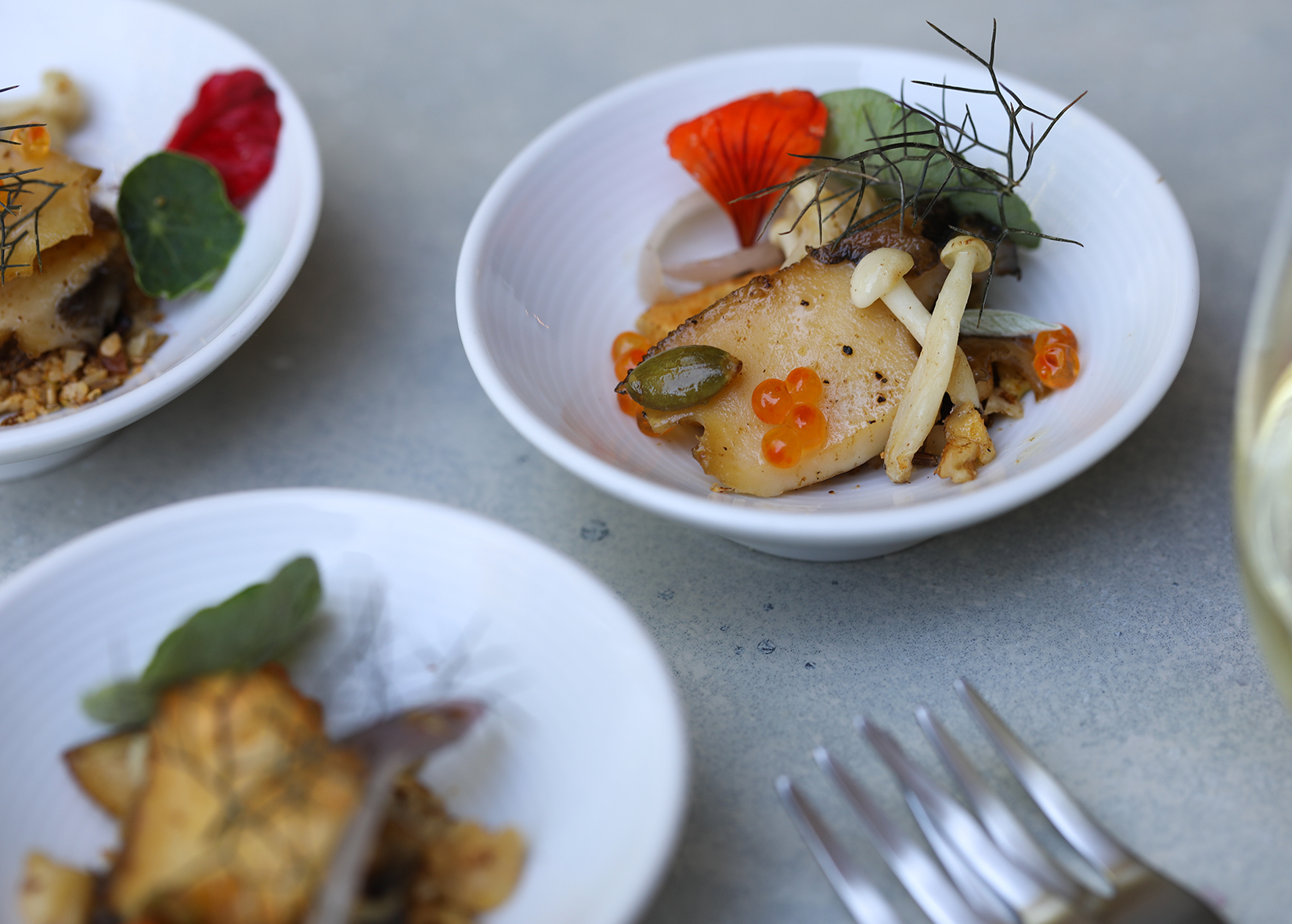Instructions
Share
Preheat oven to 400°.
In a cast iron pan, toast the spices until fragrant, then reserve. Spread the nuts on an unlined sheet pan and toast until fragrant and refreshed (8-10 minutes). Begin grinding the dukkah in the mortar and pestle, starting with the spices, followed by the toasted nuts. Fold in benne seeds, fennel pollen, sumac and Maldon sea salt. Dukkah may be kept refrigerated in a sealed mason jar for up to one month.
Scrub the abalone under running water. Combine the abalone and water in a heavy-bottomed pot and bring to a simmer over medium-high heat. Remove the abalone immediately to a plate with a slotted spoon and skim any impurities from the broth. Pull the abalone from the shells (they will come apart easily). Remove the abalone’s green liver and viscera and discard. Return the cleaned abalone, sake, Chardonnay, honey and half of the soy into the pot and return to a simmer over medium heat. After 30 minutes, taste the broth and season with the additional soy sauce to taste. When the abalone are easily pierced by a skewer or paring knife, remove from the heat and chill the abalone in the broth. Refrigerate for up to three days.
Slice shallots in half lengthwise and toss in a non-reactive bowl with Madeira, sherry vinegar, olive oil, sel gris and ground black pepper. Cover the bowl with plastic wrap and allow the shallots to marinate. For 1 hour, while shallots are marinating, prepare a hot charcoal grill and preheat oven to 425°. Carefully char shallots on all sides (3-4 minutes), then remove from the grill and wrap in foil. Roast the shallots until tender throughout (25-30 minutes). Peel the shallots and adjust seasoning with seasoned rice wine vinegar, sel gris and freshly ground black pepper. Reserve.
When ready to serve, slice each abalone into thirds. Heat a cast iron pan over medium-high heat, then add olive oil and butter. Reduce heat to medium and sear abalone slices on both sides. Set aside. In the same pan, add the enoki mushrooms and quickly sauté for 1 minute. Deglaze the mushrooms with a splash of seasoned rice wine vinegar and reserve.
Divide the dukka between six small bowls. Layer three slices of seared abalone with a petal of roasted shallot and mushrooms. Garnish with golden trout roe. Spoon a teaspoon of rice wine vinegar over the abalone and finish with blossom, leaf and frond. The cold broth may be poured tableside, if desired.

